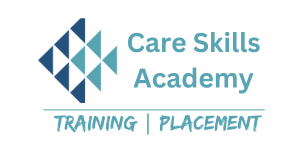Drones have transformed numerous fields, from aerial photography and agriculture to delivery services and emergency response. As the popularity and applications of drones expand, so does the demand for skilled technicians who can repair and maintain these sophisticated devices. Enrolling in a Drone Repairing Course can equip you with specialized skills to enter this fast-growing sector. Here’s an in-depth look at what you can expect from the course and the career opportunities it offers.
Why Drone Repair Skills Are in High Demand
Drones are complex systems combining mechanical, electrical, and software components. They rely on various technologies, including GPS, gyroscopes, cameras, and motors, to function correctly. As drones become more integral to daily operations, especially in fields requiring precision and reliability, the need for repair and maintenance services grows. Learning how to diagnose and fix issues can open doors to numerous opportunities, including roles as drone technicians, consultants, or independent contractors.
What Will You Learn in a Drone Repairing Course?
A comprehensive Drone Repairing Course covers both theoretical knowledge and practical skills. Here are some core areas typically included:
- Drone Components and Their Functions: Understanding the essential parts of a drone, such as the motors, propellers, electronic speed controllers (ESCs), flight controllers, batteries, and GPS modules, is crucial. This foundational knowledge prepares you to diagnose and address issues in any of these components.
- Soldering and Wiring Techniques: Drones have intricate wiring systems, often requiring delicate soldering skills to connect components securely. The course teaches soldering techniques to ensure solid connections, especially for parts that endure vibrations, like motors and ESCs.
- Motor and Propeller Replacement: Motors and propellers are among the most commonly damaged parts in drones due to crashes or wear and tear. You’ll learn how to replace these parts safely and how to balance propellers to maintain stability during flight.
- Battery Maintenance and Safety: Proper handling of drone batteries, particularly LiPo (Lithium Polymer) batteries, is essential for safe operation. You’ll be trained on battery maintenance, safe charging practices, and testing procedures to prevent issues like overheating or explosions.
- Flight Controller Calibration and Firmware Updates: The flight controller is the “brain” of the drone, requiring regular calibration and firmware updates for optimal performance. You’ll learn to diagnose firmware-related issues, perform updates, and troubleshoot any calibration errors.
- Software and GPS Troubleshooting: Drones rely on software and GPS for navigation and stability. The course covers troubleshooting software issues and recalibrating GPS settings, crucial skills for ensuring precise positioning and reliable control.
- Crash Damage Assessment and Repair: Accidents and crashes are common, and repairing crash damage requires identifying affected parts and replacing or fixing them as needed. This part of the course gives you hands-on experience with real-life repair scenarios, preparing you for actual repair jobs.
Tools and Equipment You’ll Use
The Drone Repairing Course introduces you to essential tools, including multimeters, soldering irons, screwdrivers, and propeller balancers. Understanding and using these tools properly is key to performing accurate repairs, especially on small components. Advanced diagnostic tools are also covered, giving you insight into the professional tools used in the industry.
Career Opportunities After Completing the Drone Repairing Course
The drone industry is rapidly growing, and completing a Drone Repairing Course can unlock several career paths:
- Drone Repair Technician: Many repair technicians work at drone manufacturing companies, service centers, or with independent repair services, fixing and maintaining drones for clients.
- Field Technician: For companies using drones in sectors like agriculture, construction, or emergency services, field technicians are essential for maintaining and repairing drones on-site.
- Freelance Drone Repair Specialist: Some technicians prefer to work independently, offering freelance repair services. This role allows for flexibility in terms of clients and scheduling, making it ideal for those interested in building a personal brand.
- Consultant and Trainer: With experience, you could transition into a consultant role, advising companies on best maintenance practices, or even training others in drone repair.
Why Choose a Drone Repairing Course?
A Drone Repairing Course is ideal for those interested in technology, electronics, or aviation. It’s a hands-on, engaging way to learn a specialized skill that’s in high demand. As drones become an integral part of various industries, your skills will be valuable for employers looking to keep their equipment in top shape. Additionally, since the course is typically short, it’s a great way to build technical skills without a long-term commitment.
Conclusion
With drones becoming indispensable across numerous sectors, the need for skilled drone repair technicians is more significant than ever. A Drone Repairing Course offers practical training in diagnosing, fixing, and maintaining these complex devices, making it a fantastic choice for anyone looking to enter the drone or technology repair industry. Whether you aspire to work in a repair center, become a freelance technician, or build a career in an emerging tech field, the skills gained in this course are valuable and versatile.

